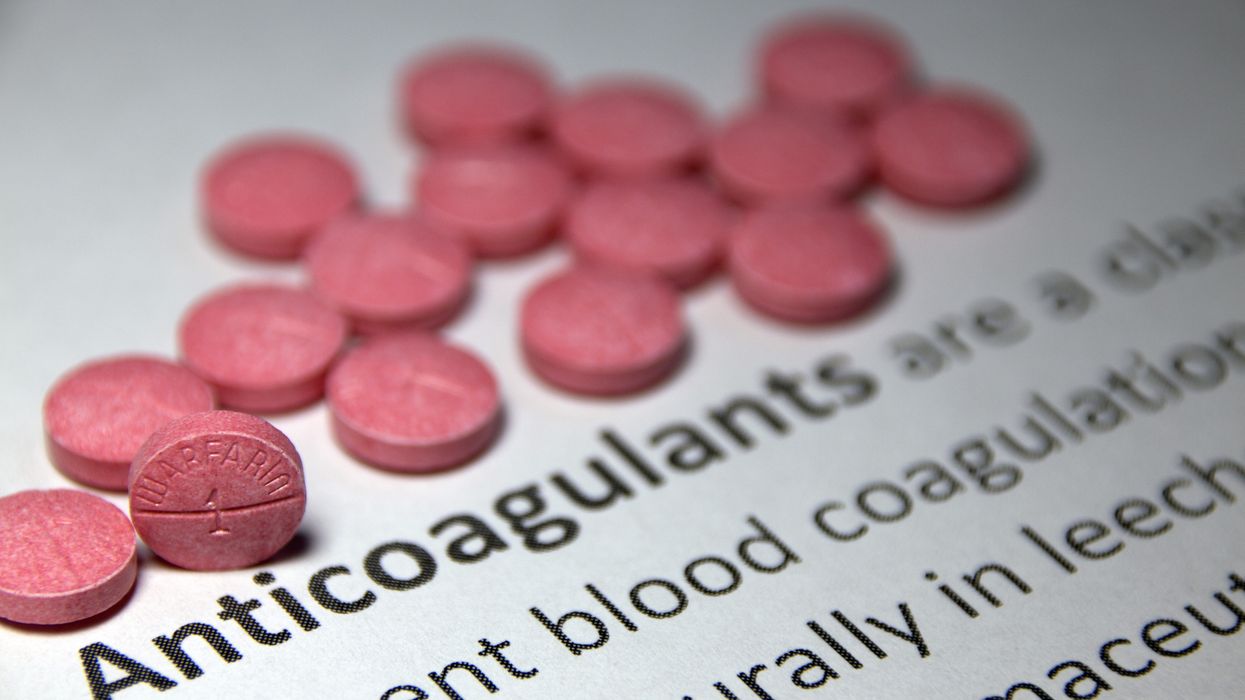Blood thinner therapy need not be delayed in most patients with a recent stroke attributable to an irregular heartbeat, according to a new analysis.
Pooling data from four randomized trials involving nearly 5,500 patients with atrial fibrillation and a recent stroke, researchers found that starting direct oral anticoagulants - which prevent formation of blood clots - within four days was safe and effective.
These drugs include Johnson & Johnson’s Xarelto or Eliquis from Bristol Myers Squibb and Pfizer.
Atrial fibrillation can lead to blood clots in the heart that dislodge and travel to the brain, causing a stroke. Blood thinners can prevent clots, but they also increase the risk of bleeding in the brain, so it has been common practice to hold off for a while after a stroke before starting them.
Based on the safety observed in the current analysis, “the benefits of early initiation of blood-thinning treatment are clear," study leader Nick Freemantle of University College London said in a statement.
"This approach ensures that crucial treatments are not delayed or missed, particularly for patients who are discharged from the hospital."
Patients were split into two groups, with 2,691 receiving the blood thinners within 4 days and 2,750 starting the pills on day 5 or later.
The incidence of either recurrent strokes from blood clots or strokes from bleeding in the brain was 2.1 per cent with early anti-coagulation administration and 3.0 per cent with delayed treatment, researchers reported in The Lancet.
There was no increase in brain bleeding in the early-treatment group. However, few patients in the trial had experienced strokes that extensively damaged the brain, which would have increased the bleeding risks associated with starting the blood thinners right away.
An editorial published with the study concludes that overall, the findings favour early initiation of oral anticoagulation in patients with strokes related to atrial fibrillation, especially those with smaller amounts of brain damage.
However, the editorial noted some additional factors for providers to consider.
“Adherence to strict predefined early or late initiation thresholds might oversimplify the complexity" of deciding when to start blood thinners, it noted. It said there should be an assessment of other co-morbidities, including advanced age, other medications being taken and frailty, when delayed blood thinner therapy "might derive increased benefit.”












